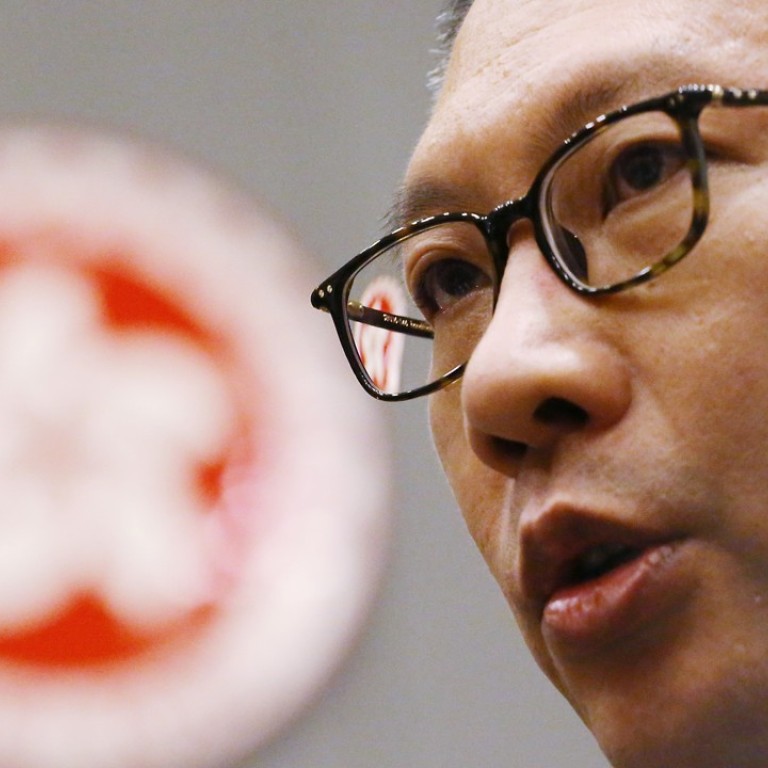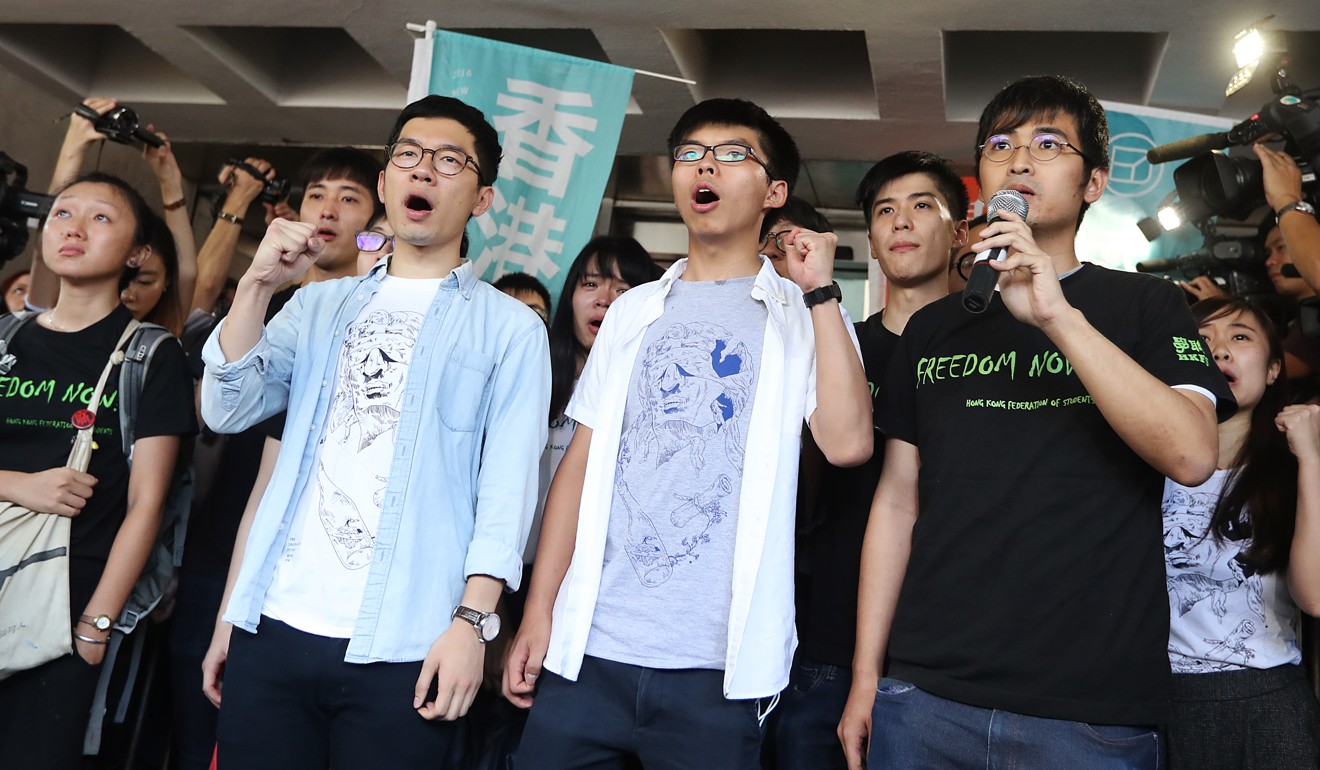
Beijing accuses veteran pan-democrat of foreign collusion after Occupy protesters jailed
The attack came as the city’s justice minister Justice Rimsky Yuen denied the jailed trio were victims of political persecution.
Beijing singled out a leading Hong Kong opposition figure for scathing condemnation on Friday, accusing him of colluding with foreign forces to criticise the jailing of three student leaders.
The attack came as the city’s justice minister denied the jailed trio were victims of political persecution.
And in a rare move, the city’s two biggest legal professional bodies jointly hit out at both local and international media for suggesting there were political motives behind the six to eight-month prison terms for Joshua Wong Chi-fung, Nathan Law Kwun-chung and Alex Chow Yong-kang.

The Court of Appeal on Thursday increased the Eastern Court’s original community service and suspended jail sentences handed out to the trio for storming the government headquarters compound at Admiralty during an illegal protest that triggered the 79-day Occupy sit-ins of 2014.
Why were 13 Hong Kong protesters jailed, and what does this mean for future demonstrations?
“This is a significant revelation that foreign forces have been colluding with anti-China forces in Hong Kong in messing up the city and interfering with its judicial independence,” a spokesman for the Chinese Foreign Ministry’s office in Hong Kong said.
“Hong Kong belongs to China, and we would absolutely not allow any foreign government, institution or person to interfere with China’s domestic affairs and Hong Kong affairs in any way.”
Lee rejected the accusations.
Secretary for Justice Rimsky Yuen Kwok-keung refused to confirm or deny reports that he had overruled “top prosecutors” who had originally recommended the government should not seek stiffer punishment for the student leaders after they were spared prison terms last August.
“It is not important whether we have differences, what is most important is that the decision was eventually made according to legal principles,” Yuen said. “In deciding to prosecute, to apply for review, and in the court’s handling, I emphasise again: there is no political motive involved.”
The Bar Association and the Law Society noted that the city’s courts made rulings “solely according to law”.
“Unfounded comments that judicial decisions were made or influenced by political considerations originating outside Hong Kong are unjustified and damaging to our legal system, and to Hong Kong as a whole,” the two groups said.
University of Hong Kong legal scholar Eric Cheung Tat-ming also came to the judiciary’s defence and dismissed criticism that there was a “cooperation” rather than “separation of powers” among the three branches of government.
“I completely trust the independence of the three judges,” he said. “They ruled independently based on their understanding of the law, not political concerns.”
He also said it was understandable for the court to rule in accordance with the law and convict those who took part in civil disobedience, given its essence was to break the law and bear legal consequences in the aftermath.
Noting that Yuen had not denied overruling his colleagues, legal sector lawmaker Dennis Kwok urged the minister and the director of public prosecutions to defend the department’s credibility with a proper explanation.
“It is Yuen’s job to explain clearly whether he negated the decision of his senior lawyer colleagues. What was their advice and what was his view?” he said.
But some remained worried that the strong stance of the court would stifle future political participation.

